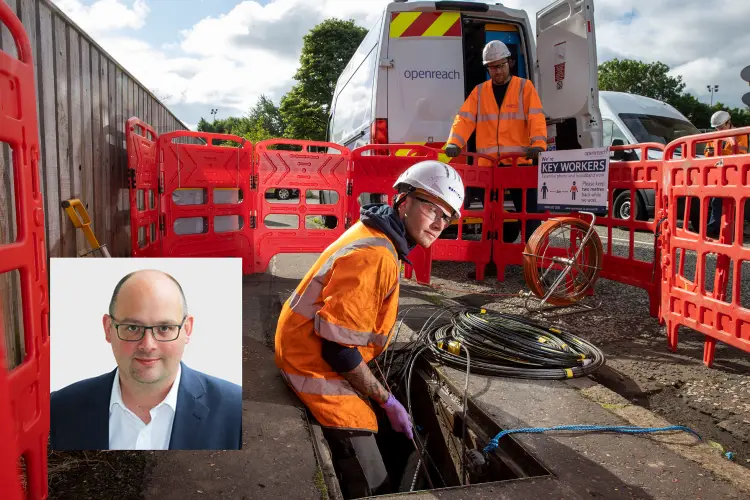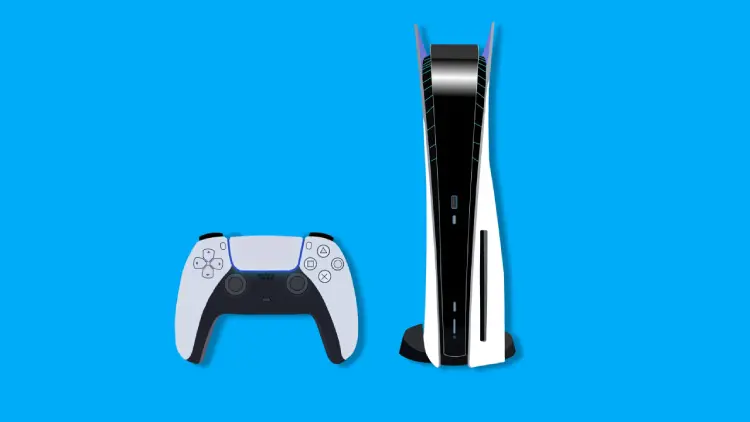
Though Prime Minister Boris Johnson has promised Christmas will be “as normal as possible” this year despite the Covid-19 pandemic, families up and down the country are facing up to a drastically different festive season.
With social distancing rules looking likely to remain in place over the holidays, the only way many people will be able to connect with loved ones is virtually, adding another layer of demand to what is already a busy time of year for internet service providers (ISPs), amid a surge in e-commerce usage.

Lockdowns across the country mean more shopping is also being carried out online than ever before. Is the UK telecoms infrastructure ready to cope with this surge in data demand?
Lessons from lockdown one
Unsurprisingly, internet usage soared during the first national lockdown, with the average UK adult spending an extra 35 minutes online per day in April, at the height of lockdown, compared to before Covid-19 took hold.
The bigger challenge for ISPs was not increased traffic but the change of behaviour, with internet usage moving away from business connections to home broadband.
“Our members were used to a two-hour peak in the evening, between 8pm [and] 10pm when people are watching Netflix,” says David Burns, managing director of ISP Boundless Networks and chair of UKWISPA, the industry association for fixed wireless broadband providers.
“Now that volume is the norm during the day, so you have a 12-hour ‘peak’.”
Elsewhere, some members of the Internet Service Providers Association (ISPA) reported a 50% increase in the volume of daytime traffic, with evening demand also rising about 15%, the association says.
Though a third of UK users polled by YouGov felt their quality of internet connection deteriorated during the first lockdown, in reality, most did not experience a big drop in download speed. Data from M-Lab and the Oxford Coronavirus Government Response Tracker shows that average download speeds in the UK fell 1.7% during lockdown, clocking in at a rate of 40.62mbps.
UK networks held up well compared to other European countries such as France (-7.26%), Spain (-6.67%) and Italy (-10.44%), all of which experienced more substantial degradations during their lockdowns, though some countries, such as Greece and Germany, managed to bolster infrastructure to the extent that download speeds increased over the lockdown period.
“I think it was a surprise to a lot of people, though not necessarily those in the industry, that we didn’t see any major connectivity blackouts when we all started working from home,” says Emma Shearer, policy manager at ISPA.
“A lot of that was to do with the management behind the scenes and critically, the key worker status that telecoms workers were given, which allowed engineers to keep working down holes, as well as continuing to go out to fix faults and manage the network at base stations.”
Christmas is coming
Broadband going down over Christmas is the digital equivalent of finding a lump of coal in your stocking. Colin Lees, CTIO at Openreach, which runs much of the UK’s digital infrastructure, says the network has been strengthened ahead of the holiday period to cope with the demands of the pandemic.

“Since the pandemic began we’ve been meticulously adding more capacity in the form of second fibres, extra capacity cards and 10Gig cablelinks – and this has ensured that the Openreach network could cope with everything thrown at it during this extraordinary year,” he explains.
“We’re confident it will continue to stand up to the test.”
Burns says the experience of the first national lockdown will stand UKWISPA members, and other ISPs, in good stead.
“During the lockdown period, most operators have managed to get their house in order,” he says. “We are regarded as critical national infrastructure, so if we order a new Openreach fibre circuit, it gets priority and can be installed fairly quickly.
“The work has already been done to bring people’s networks into line with overall workloads going up, and the smart operators have done that work through the summer.”
The reason your connection might slow down this Christmas (hint: it’s not Zoom calls)

While a deluge of video calls might seem like it would put the UK telecoms infrastructure under great strain, other areas of internet usage are much more problematic, particularly in the run-up to Christmas.
Openreach’s Lees says: “Broadly speaking, most of the peak traffic events over the last 12 months have been around either major sporting events, such as Amazon streaming a full round of Premier League fixtures online, or big updates or content releases to popular PlayStation, PC and Xbox games, such as Call of Duty.”
He cites the example of last Sunday, 8 November, which saw a spike in traffic coinciding with a new iOS update being released.
Burns says the release of next-generation games consoles – the PlayStation 5 and Xbox Series X, both of which will land in the UK this week – will usher in a downloading spree, particularly on Christmas Day once everyone has unwrapped their shiny new toys.
He says: “The PlayStation doesn’t have a DVD slot, it’s an entirely digital console and everything has to be downloaded. (A premium version with Blu Ray player is available if you’re prepared to shell out a bit more).
“A couple of months ago the internet almost broke when Call of Duty released a new version and gamers, young and not so young, dusted off their consoles. We’ve all got a lot more time on our hands and that’s re-invigorated a lot of people’s interest in gaming and online entertainment.”
Burns added that the detailed game worlds in titles such as Call of Duty or Red Dead Redemption means downloads run into hundreds of gigabytes.
“If you get a million people across the country downloading a 500GB game that puts a lot of stress on the backbone of the internet,” he says.
“On Christmas Day, the Zoom stuff will be trivial compared to gaming updates. The whole ISP industry is bracing itself ready for the joys that that will bring.”






